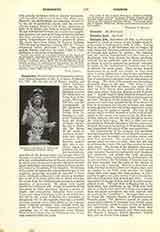

Commodus (MARCUS AURELIUS COMMODUS ANTONINUS), Roman Emperor, b. 161; d. at Rome, December 31, 192. He was the son of Marcus Aurelius and Annia Faustina, and was the first among the Roman emperors to enjoy the distinction of being born in the purple. His reign, 180-193, was the turning-point in the greatness of Rome. Some historians have attempted to exonerate Commodus from the charge of innate depravity and to attribute the failure of his career to weakness of character and vicious associates. It is, however, undeniable that a condition, which resulted in the slow but inevitable destruction of the Roman power, was brought about by the lack of capacity and evil life of Commodus, coupled with the overcentralization in Roman administration by which, since the time of Augustus, the most absolute power in the State and religious affairs had been gradually vested in the person of the emperor. Every stage in the career of Commodus was marked by greed and suspicion, producing, as might be expected in those times, wholesale confiscation and numerous murders. One result of his cruel policy was to divert attention for a time from the Christians and to lead to a partial cessation of persecution. No edicts were issued against the Christians who, though persecuted by the proconsuls in some provinces, enjoyed a period of respite and comparative immunity from pursuit. There were many Christians at the court of Commodus and in the person of Marcia, the concubine or morganatic wife of the emperor, they had a powerful advocate through whose kind offices on one occasion many Christian prisoners were released from the mines in Sardinia. Commodus was murdered by strangling, one of the conspirators being Marcia. There is no evidence that the Christians were in any way connected with his death.
PATRICK J. HEALY

